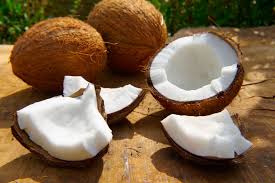
Given the current scarcity of coconut production in Sri Lanka, the idea of banning coconut exports has been debated. Below are the pros and cons of such a decision, along with its potential effects on exporters and foreign currency revenue.
Pros of Banning Coconut Exports
- Domestic Market Stability
- A ban would ensure an adequate supply of coconuts for local consumption, particularly for food and essential industries like coconut oil and desiccated coconut production.
- Prices for domestic consumers could stabilize, preventing inflation of coconut-based products.
- Support for Local Industries
- Local industries that rely on coconuts (e.g., oil producers, food manufacturers) would have better access to raw materials, ensuring business continuity and reducing reliance on imports.
- Food Security
- A ban could prioritize domestic food security, as coconuts are a staple in Sri Lankan cuisine and culture.
- Boost for Value-Added Products
- Instead of exporting raw coconuts, the country could focus on producing value-added products like virgin coconut oil, coconut milk, or coconut-based cosmetics for export, generating higher revenue per unit.
Cons of Banning Coconut Exports
- Impact on Exporters
- Coconut exporters, particularly small and medium-sized businesses, would face significant losses as their primary revenue source would be cut off.
- Export-oriented companies may have to downsize or shut down operations, leading to job losses in the sector.
- Loss of Foreign Currency
- Coconut exports contribute to much-needed foreign currency earnings. A ban would reduce export revenue, potentially worsening Sri Lanka’s foreign exchange reserves crisis.
- It could also harm the country’s trade balance at a time when foreign currency is crucial for debt repayment and imports of essential goods.
- Market Competition
- Sri Lanka could lose its position in the global coconut market to competing countries like the Philippines, Indonesia, or India, which might fill the gap. Regaining market share in the future would be challenging.
- Negative Investor Sentiment
- Unpredictable policies like export bans could deter investors from the agricultural sector, fearing similar restrictions in the future.
Would It Affect Exporters and Foreign Currency Revenue?
- Exporters: Yes, a ban would have a direct and adverse effect on coconut exporters, especially those who depend on raw coconut exports. Export-oriented businesses could see their operations severely disrupted, leading to financial losses and unemployment within the sector.
- Foreign Currency Revenue: The ban would significantly reduce foreign exchange inflows, as coconuts and coconut-based products contribute substantially to agricultural exports. For a country like Sri Lanka, which is already grappling with a foreign currency crisis, this loss could have a ripple effect on economic stability.
Alternatives to an Export Ban
- Export Quotas: Instead of a complete ban, impose quotas to ensure that a certain percentage of the coconut harvest is reserved for domestic use.
- Promote High-Yield Varieties: Invest in agricultural research and support farmers in cultivating high-yield coconut varieties to boost production.
- Value Addition: Encourage the production and export of value-added coconut products to maximize revenue while preserving raw coconut supply for local needs.
- Incentives for Domestic Use: Provide subsidies or incentives to local industries reliant on coconuts, reducing the impact of scarcity.
Urgency for a Quick Solution is the Need of the Hour
While banning coconut exports may temporarily alleviate the domestic scarcity, it could have far-reaching consequences for exporters and foreign currency revenue. A balanced approach, such as implementing export quotas or promoting value-added products, may offer a more sustainable solution. This way, Sri Lanka can safeguard its domestic market while maintaining its position in the global coconut industry and securing vital foreign exchange earnings.




